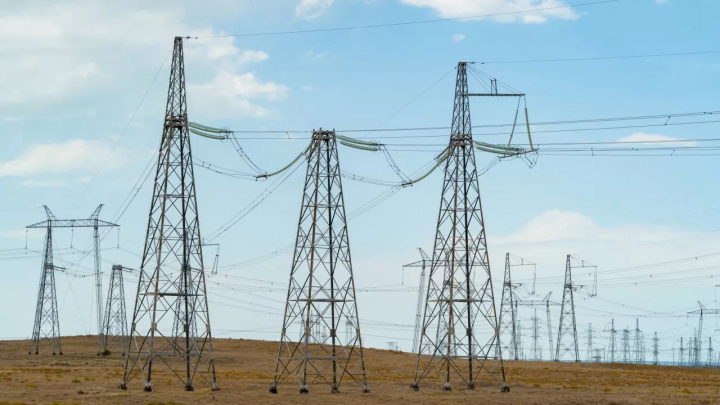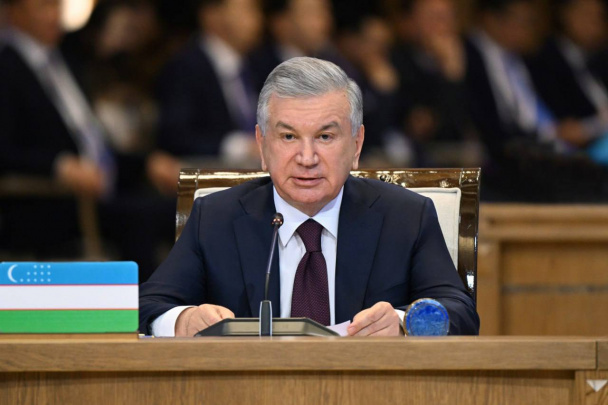CSTO decides to deploy peacekeeping troops in Kazakhstan
The CSTO announced early on Thursday that it will send peacekeeping troops to Kazakhstan, where massive riots stemming from nationwide protests over high fuel prices have led to a state of emergency and the resignation of the government.
Armenian Prime Minister Nikol Pashinyan, the current chair of the Collective Security Treaty Organization (CSTO), said the organization considered the threats to the national security and sovereignty of Kazakhstan before reaching the decision.
“In view of the address of President of Kazakhstan Kassym-Jomart Tokayev and considering the threat to national security and sovereignty of the Republic of Kazakhstan, caused in particular by interference from the outside, the CSTO Collective Security Council in accordance with Article 4 of the Collective Security Treaty made the decision to send CSTO Collective Peacekeeping Forces to the Republic of Kazakhstan for a limited period with the aim of stabilization and normalization of the situation in this country,” Pashinyan wrote on Facebook.
“The forces will be deployed for a limited period of time in order to stabilize the situation in the country,” he added.
Tokayev said Wednesday he intended to “act as tough as possible” as the situation in the country becomes “extremely tense.”
About half of the country’s territory is engulfed in riots, he said in his address to the people of Kazakhstan, adding that the situation is especially difficult in the Kazakh city of Almaty.
The protests broke out on Jan. 2, when drivers in the city of Zhanaozen in the country’s oil-rich Mangystau region staged demonstrations against huge price hikes for liquefied petroleum gas (LPG), which later spread to the city of Aktau.
Supportive protests in the western cities of Atyrau, Aktobe and Oral, where the country’s petroleum and natural gas reserves are located, spread to other corners of Kazakhstan and turned into public demonstrations.
As the protests spread across the country, Tokayev declared a state of emergency in the city of Almaty and the Mangystau region from Jan. 5-19 to maintain public security. He also imposed a curfew in Almaty, the country’s former capital, where thousands of people had taken to the streets.
While police used stun grenades and teargas to disperse the protesters, they responded with stones. Clashes were also reported between the police and demonstrators.
Tokayev accepted the government’s resignation in a presidential decree. Later, demonstrations reached a nationwide level, followed by a countrywide state of emergency.
The government also decided Wednesday to introduce price controls on LPG, gasoline, diesel fuel and basic food products for 180 days.
Recommended
List of streets and intersections being repaired in Tashkent published
SOCIETY | 19:12 / 16.05.2024
Uzbekistan's flag flies high on Oceania's tallest volcano
SOCIETY | 17:54 / 15.05.2024
New tariffs to be introduced in Tashkent public transport
SOCIETY | 14:55 / 05.05.2023
Onix and Tracker cars withdrawn from sale
BUSINESS | 10:20 / 05.05.2023
Latest news
-
Uzbekistan tops medal table at Asian Cadet Judo Cup in Kazakhstan
SPORT | 18:42 / 05.07.2025
-
Uncertainty grows as new homes remain without gas supply
SOCIETY | 17:46 / 05.07.2025
-
Uzbekistan plans to launch national ferry service in Caspian Sea
SOCIETY | 16:03 / 05.07.2025
-
Dozens of violations, zero accountability: Fergana police cancel fines for chief’s wife’s car
SOCIETY | 16:02 / 05.07.2025
Related News

18:42 / 05.07.2025
Uzbekistan tops medal table at Asian Cadet Judo Cup in Kazakhstan

16:01 / 28.06.2025
Chevrolet slashes prices on key models in Kazakhstan

14:18 / 20.06.2025
Power outage in Kazakhstan affects Uzbekistan

20:06 / 17.06.2025



